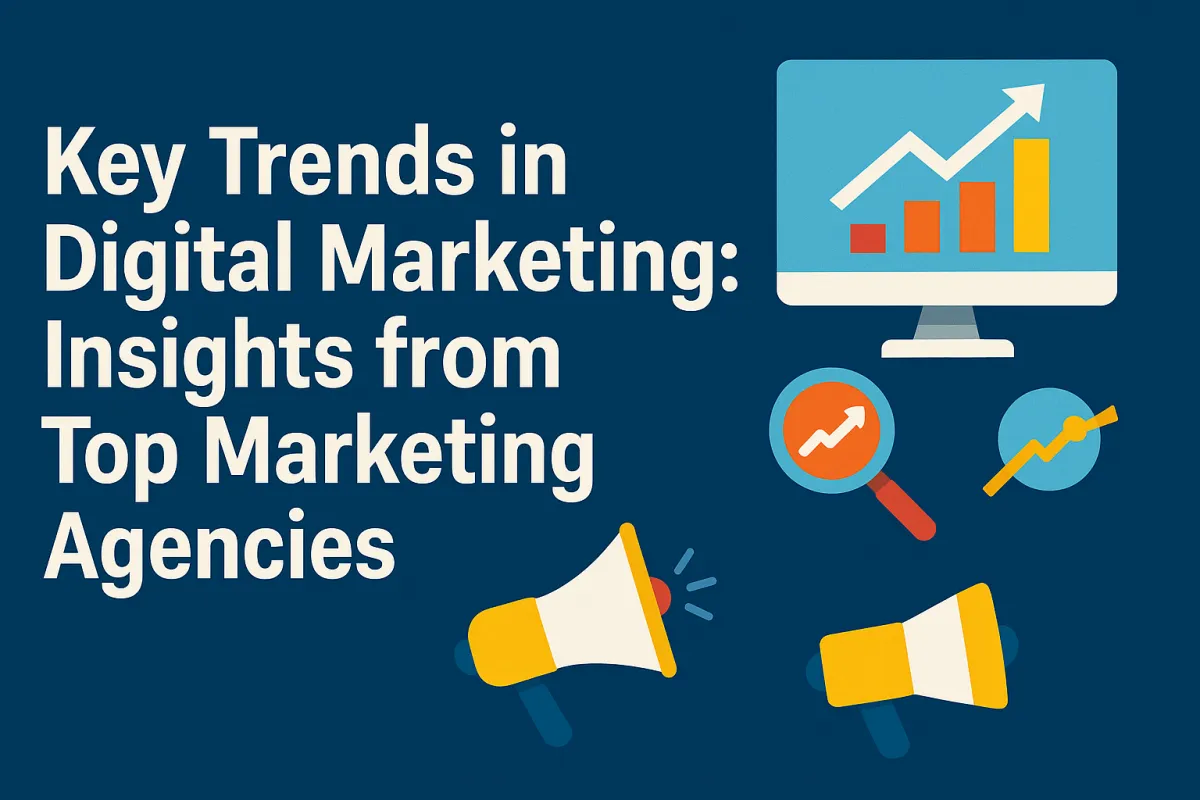
Key Trends in Digital Marketing: Insights from Top Marketing Agencies
Digital marketing is a fast-evolving industry, shaped by technology, consumer behavior, and constant innovation. To remain competitive, businesses must stay informed about the latest trends driving results across various platforms. In this article, we explore key digital marketing trends identified by top marketing agencies worldwide.
1. The Rise of AI and Automation
Personalization at Scale
Top agencies are leveraging AI tools to personalize content, emails, and product recommendations. Machine learning algorithms analyze user behavior to deliver tailored experiences that improve engagement and conversion rates.
Chatbots and Virtual Assistants
AI-powered chatbots are increasingly handling customer service, lead generation, and product inquiries 24/7. These tools enhance user experience while reducing operational costs.
2. Short-Form Video Content Dominates
The Power of TikTok and Instagram Reels
Agencies agree that short-form video content is king in 2025. Platforms like TikTok, Instagram Reels, and YouTube Shorts are critical for capturing attention and driving brand awareness, particularly among younger audiences.
Video SEO and Vertical Formats
To succeed, marketers now optimize videos for search engines and mobile-first viewing, using vertical formats, closed captions, and attention-grabbing hooks within the first 3 seconds.
3. Voice Search and Smart Devices
Optimizing for Conversational Queries
With the growing use of smart speakers and voice assistants, marketers are shifting toward conversational keywords. SEO strategies now include long-tail, question-based phrases to match spoken queries.
Local Voice Search
Top agencies highlight the importance of optimizing for local voice search—especially for businesses with physical locations.
4. Privacy-Centric Marketing
The Decline of Third-Party Cookies
Agencies are preparing for a cookieless future by investing in first-party data collection strategies. Email lists, loyalty programs, and website analytics are becoming crucial data sources.
Transparent Data Practices
Consumer demand for privacy has led brands to adopt transparent data policies and prioritize consent-based marketing to build trust.
5. Influencer and Creator Partnerships
Micro-Influencers Take the Lead
Rather than relying solely on celebrity influencers, agencies are turning to micro- and nano-influencers with high engagement and niche audiences for more authentic campaigns.
Long-Term Collaborations
Top firms suggest building long-term relationships with content creators instead of one-off sponsorships to maintain consistency and trust.
6. Omnichannel Marketing Strategies
Consistent Brand Experience
Marketing agencies stress the importance of maintaining a seamless brand presence across all platforms—from social media to websites, emails, and mobile apps.
Integrated Campaigns
Successful agencies build campaigns that coordinate messaging, timing, and design across paid, owned, and earned media for maximum impact.
7. Data-Driven Decision Making
Real-Time Analytics
Top marketing agencies emphasize using real-time data dashboards to track performance and make quick adjustments to campaigns.
Predictive Analytics
With the help of AI, predictive analytics tools forecast future trends and consumer behavior, helping marketers make smarter investments.
8. Interactive and Immersive Experiences
Augmented Reality (AR) Marketing
Brands are using AR filters, virtual try-ons, and immersive ads to create engaging experiences. Agencies note that AR content boosts engagement and recall.
Gamification
Interactive quizzes, challenges, and gamified loyalty programs are becoming popular tools to enhance user participation and brand loyalty.
Final Thoughts
The digital marketing landscape is constantly evolving, but the most successful agencies share a common approach: embrace change, focus on the customer, and use data to drive strategy. By adopting these key trends, businesses can stay ahead of the curve and build stronger, more engaging digital experiences in 2025 and beyond.